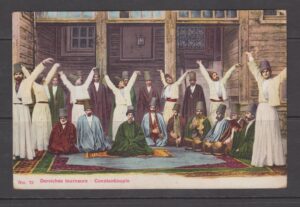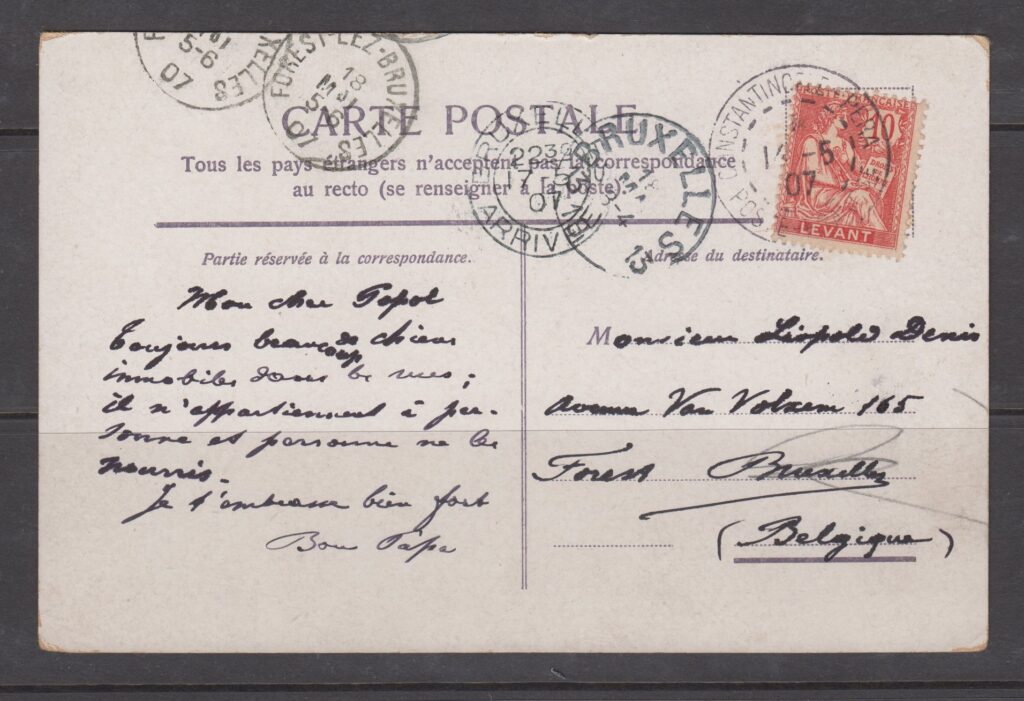
The mystique of the Sufi dervishes has captivated people across cultures and centuries. This 1907 postcard, sent through the French Post Office in the Levant, features a captivating group of whirling dervishes from Constantinople (modern-day Istanbul). Addressed to Belgium, this piece offers not just a postal artifact but also a glimpse into the profound spiritual traditions of Sufism.
The Postcard and Its Journey
This postcard, adorned with a French Levant stamp, bears a cancellation mark from Constantinople and a receiving mark in Belgium. It was sent during the early 20th century, a time when postcards were not only a popular means of communication but also a window into distant cultures.
Who Were the Dervishes?
The term “dervish” (or darvesh) refers to a Sufi mystic who seeks closeness to God through personal virtue and individual experience, often shunning material possessions and worldly desires. Dervishes are celebrated for their spiritual devotion and are often credited with performing miracles.
The postcard depicts a gathering of Mevlevi dervishes, a Sufi order founded by followers of the 13th-century Persian poet and mystic, Rumi. Their signature practice, the Sama, involves a whirling dance performed as an act of devotion, aiming to reach a state of spiritual ecstasy and unity with the divine.
The Sama: Dance of Devotion
The Sama is the most recognized practice of the Mevlevi order and has become synonymous with the image of the “whirling dervish.” This sacred dance, however, is not exclusive to the Mevlevi and is practiced by other Sufi orders as part of broader ceremonies designed to achieve spiritual ecstasy, also known as majdhb or fana.
While deeply rooted in spirituality, the Sama has also gained prominence as a cultural and tourist attraction in modern-day Turkey, drawing visitors eager to witness the mesmerizing spins and symbolic gestures of the dervishes.
A Cultural and Philatelic Treasure
This postcard bridges two worlds: the rich spiritual heritage of Sufism and the historical significance of the French Post Offices in the Levant. For philatelists, the combination of a French Levant stamp, Constantinople cancellations, and the destination in Belgium makes this an intriguing collectible.
Have you come across other philatelic treasures featuring cultural or spiritual practices? Share your stories or images in the comments below! And don’t forget to subscribe for more explorations into the fascinating intersections of history, culture, and postal artifacts.


